Judy Garland Was Given Pills to Work "72 Hours in a Row" as a Child Star
"Half of the time we were hanging from the ceiling, but it was a way of life for us.”
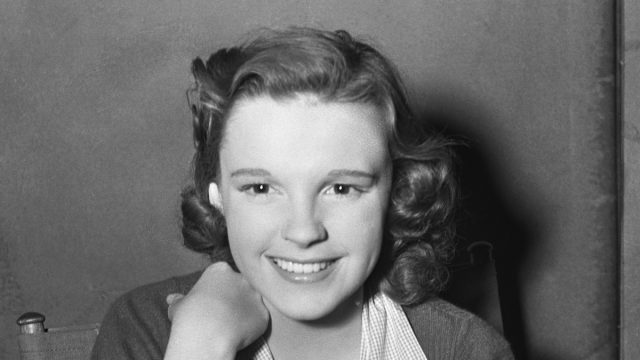
There are few movie stars as legendary as Judy Garland, who went from being a vaudeville performer to a child star to a respected adult actor on stage and screen. Yet, while her career was massive, it feels even longer than it was—Garland was only 47 years old when she died in 1969. And though the loss of the star to an accidental drug overdose was tragic, it's just as devastating that her dependence on drugs began when she was only a young child.
It is well known that, before there were laws and union rules to protect them, the Wizard of Oz actor and other child performers of her era were given stimulant pills so that they could work long hours without rest. Garland once claimed that she was fed pills in order to work "72 hours in a row." Read on to find out more about the horrifying situation Garland faced as a young actor that went on to shape the rest of her life.
READ THIS NEXT: Marilyn Monroe Doc Has "Irrefutable Evidence" of This Secret, Director Says.
Garland first began taking pills before she was 10.
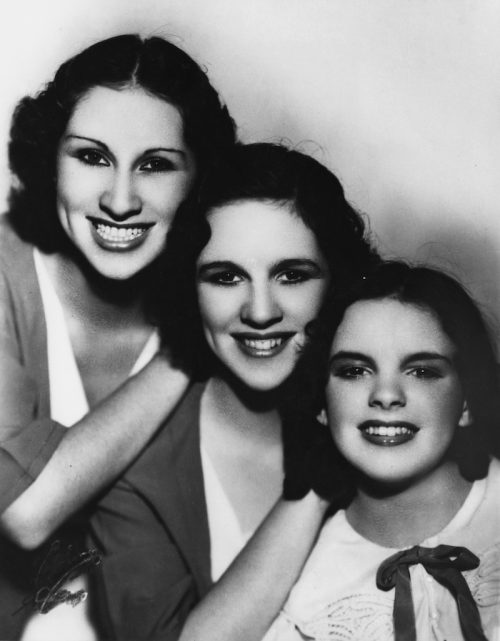
According to the biography Get Happy: The Life of Judy Garland (via Biography), Garland's mother, Ethel Marion Milne, was the first to give the performer pills to keep her awake and then to help her sleep, all before she turned 10 years old. This would have been before Garland was signed to MGM, when she was still performing with her older sisters as a vaudeville act.
Their studio used drugs to keep her and co-star Mickey Rooney working.
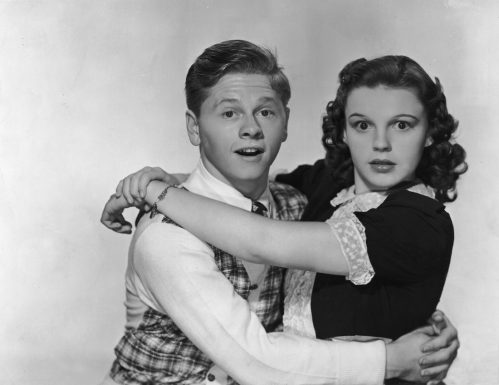
Garland was signed to MGM when she was 13. As a teen, she starred in several movies with Mickey Rooney, including Love Finds Andy Hardy, Thoroughbreds Don't Cry, and Babes in Arms. The actor attested herself that both she and Rooney were given pills during production.
"They had us working days and nights on end," she told biographer Paul Donnelley (via The Life and Times of Mickey Rooney). "They'd give us pills to keep us on our feet long after we were exhausted. Then they'd take us to the studio hospital and knock us out with sleeping pills—Mickey sprawled out on one bed and me on another. Then after four hours they'd wake us up and give us the pep pills again so we could work 72 hours in a row. Half of the time we were hanging from the ceiling but it was a way of life for us."
For more celebrity news delivered right to your inbox, sign up for our daily newsletter.
She was also forced into extreme diets.
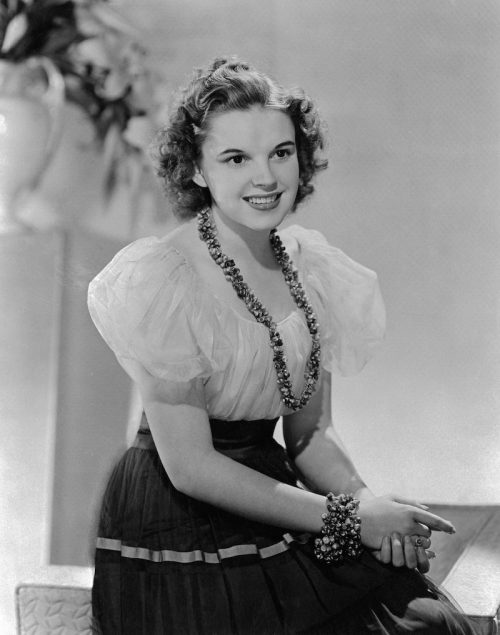
Garland was also put on strict diets and took pills in order to stay thin while she was a teen star. It has been rumored that at times she could have only chicken soup, coffee, cigarettes, and appetite-suppressing pills.
"Most of her teen and adult life, she had been on either Benzedrine or a diet or both," Garland's third husband Sidney Luft wrote (via People). "Unlike other actresses, she could not successfully camouflage extra weight, especially because she was dancing and singing in revealing costumes. Just 4 feet 11½ inches, she could be underweight and still appear heavy or out of proportion onscreen."
Rooney denied Garland's claims.
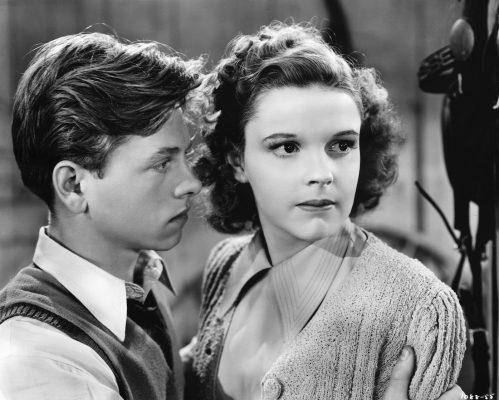
Garland said that she was given pills under the direct order of MGM studio head Louis B. Mayer, as reported by PBS. Her co-star Rooney shared a different story.
"Judy Garland was never given any drugs by Metro-Goldwyn-Mayer," he said, according to PBS. "Mr. Mayer didn't sanction anything for Judy. No one on that lot was responsible for Judy Garland's death. Unfortunately, Judy chose that path."
Either way, the addiction continued.
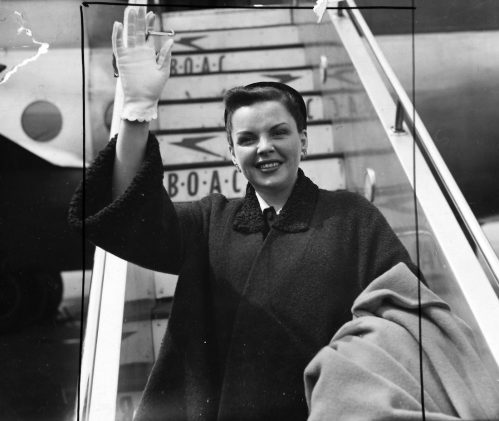
Regardless of where the pills were coming from, the addiction followed Garland throughout her life and was eventually the cause of her death.
According to Biography, she said later in life, "At times I have been pretty much of a walking advertisement for sleeping pills. Even though pills come on doctor's prescriptions, as mine did, they can be a tremendous strain on the nervous systems."





















